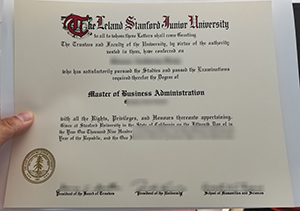
The UK offers a wide variety of degree types, primarily categorized by study level and academic focus. Below is an overview of the main UK degree types: Buy an Oxford Brookes University degree.
I. Undergraduate Degrees
Undergraduate studies in the UK typically last 3 years (4 years in Scotland). The main degree types include:
Bachelor of Arts: This is the most common undergraduate degree.
Bachelor of Arts (BA): Usually awarded to students majoring in humanities, arts, and social sciences.
Bachelor of Science (BSc): Usually awarded to students majoring in science, technology, engineering, and mathematics.
Others: Also includes Bachelor of Laws (LLB), Bachelor of Engineering (BGE), Bachelor of Education (BGE), etc., named according to their field of study.
Honors Bachelor’s Degree: The vast majority of UK undergraduate graduates receive an “Honors Bachelor’s Degree.” Its classification is strictly based on undergraduate grades and is crucial for job hunting and further studies:
First Class Honours: The highest academic achievement, typically requiring an average score of 70% or higher.
Upper Class Honours (1/2): The basic requirement for most well-known companies and top universities’ postgraduate admissions, typically requiring an average score of 60%-69%.
Upper Class Honours (2/2): The minimum admission requirement for many postgraduate programs, typically requiring an average score of 50%-59%.
Third Class Honours: A passing degree, typically requiring an average grade of 40%-49%.
Other Undergraduate Qualifications:
Ordinary Bachelor’s Degree: Awarded to students who do not meet the requirements for an honors degree; no grade distinction.
Undergraduate Diploma/Certificate: Usually a short higher education course of 1-2 years.
II. Postgraduate Degrees
Postgraduate degrees are mainly divided into two categories: “taught” and “research.”
How to buy a UK Master’s Degrees?
Taught Master’s Degrees
Transcripted programs typically last one year and are completed through coursework, examinations, and a thesis.
Master of Arts/Master of Science: The most common taught master’s degree. MSc programs usually lean towards science, engineering, and business; MA programs lean towards humanities, arts, and social sciences.
Master’s Degrees: Such as MBA, Master of Finance, Master of Engineering, etc., typically highly specialized, career-oriented courses.
Research Master’s Degrees
Transcripted programs typically last 1-2 years and focus on independent research and the completion of an academic thesis.
Research Master’s Degrees: A common transitional stage for pursuing a doctorate.
Master of Philosophy: Can be an independent degree, but often serves as a preparatory stage for doctoral research. If research progresses smoothly, one can usually become a doctoral candidate.
Doctoral Degree
The highest level of degree in the UK, typically lasting 3-4 years, based entirely on independent, original research, culminating in a dissertation of tens of thousands of words and a successful defense.
Doctor of Philosophy (PhD): The most common type of doctoral degree.
Professional Doctorates: Such as Doctor of Education (DEd) and Doctor of Business Administration (DBA), focusing more on applying academic research to professional practice.
III. Foundation Degrees and Joint Degrees
Foundation Degree: Equivalent to the first two years of an undergraduate degree, focusing more on vocational skills. Graduates can enter the workforce or complete the final year of an undergraduate program to obtain an Honours Bachelor’s degree.
Joint Honours Degree: Students study two different subjects simultaneously, graduating with a joint degree (e.g., BA in History and Politics).
Open Degree: A combination of courses chosen from various disciplines based on personal interests.
In summary, the UK degree system has a clear hierarchy and distinct classifications. Its one-year taught Master’s programs are popular among international students due to their short duration and high efficiency, while the rigorous Honours degree classification system ensures that the quality of graduates is effectively differentiated.

